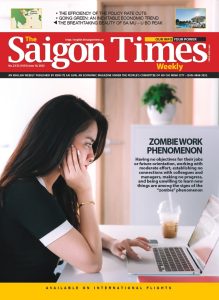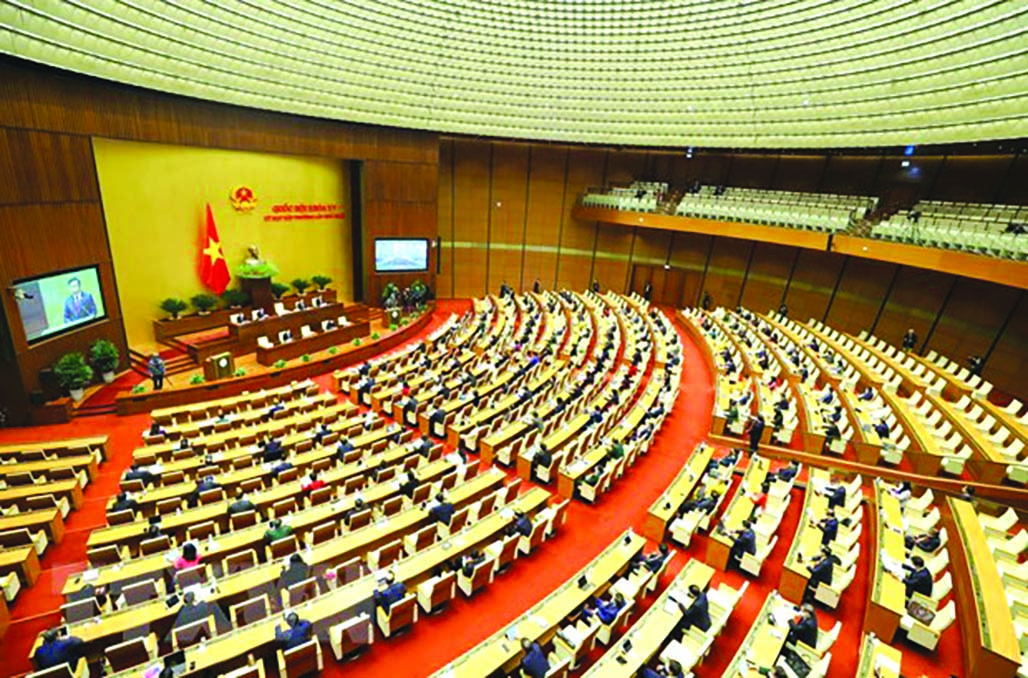Many deputies expressed their views on the pandemic, highlighting both the unity and compassion shown by the population and the opportunistic behavior of some officials. They also addressed the existing legal loopholes and the need for short-term and long-term actions.
The comprehensive report on the management and utilization of resources for Covid-19 prevention and control spans 125 pages, with 108 pages dedicated to the main contents and the remaining pages consisting of 19 appendices. The length of the report indicates the complexity of the issue that the legislature chose to prioritize for supreme supervision in 2023.
According to the report, by December 31, 2022, a total of approximately VND230 trillion had been mobilized for pandemic prevention and control efforts and the implementation of social welfare policies. This amount includes VND186.4 trillion from the State budget and VND43.6 trillion from financing and aid. Additionally, over VND11.6 trillion was raised for the Covid-19 vaccine fund, and there were 259.3 million vaccine doses worth around VND24 trillion, with nearly 150 million doses provided by foreign governments.
In addition to the material resources, millions of volunteers, particularly healthcare professionals and members of the armed forces, actively participated in the fight against the pandemic. During the fourth outbreak, nearly 300,000 officials from the government and various localities were swiftly mobilized to support heavily affected cities and provinces, primarily HCMC.
The involvement of multiple sectors, including the general public, the business community, foreign governments, and international organizations, played a crucial role in the fight against the pandemic. They contributed their efforts, financial resources, and various forms of support, which cannot simply be measured in monetary terms.
The supervisory team of the National Assembly emphasized that these contributions represent an immense and meaningful display of national unity, love, compassion, and the humanitarian values deeply embedded in Vietnamese traditions and ethics. They also acknowledged that these resources were effectively utilized according to the policies and guidelines issued, resulting in positive outcomes despite the challenging and urgent situation.
However, the pandemic has not only revealed acts of kindness but also instances of greed. Deputy Nguyen Huu Thong from Binh Thuan Province expressed his disappointment that the supervisory report did not sufficiently address the cases involving Viet A Technology Company and Covid repatriation flights, which constituted serious violations in the mobilization, management, and utilization of pandemic resources.
Nevertheless, the report extensively highlighted the loopholes and shortcomings in the legal system. It revealed that the current legal framework is inadequate in addressing emerging circumstances and relationships, leading to inconsistent implementation and delays in resource deployment, ultimately resulting in wastage.
For instance, the process for selecting contractors for procurement related to pandemic prevention and control using government funds was excessively complicated and time-consuming, even when urgency was paramount. Although the Bidding Law allows for contractor appointments in “urgent circumstances” for the purchase of medicines, chemicals, and medical equipment, the definition of “urgent circumstances” remains ambiguous.
Consequently, there was a lack of unified guidance and organization for nationwide implementation during the Covid-19 outbreak, leading to legal consequences for many officials involved.
Moreover, some policies were hastily issued during the urgent phase of the pandemic, leaving insufficient time for assessing their impact. Deputy Pham Khanh Phong Lan from HCMC highlighted those certain policies, upon reflection, appeared somewhat unreasonable. While there was a shortage of vaccines and media reports mentioned interventions for vaccination, vaccination services aimed at alleviating the burden on the public healthcare system were not permitted.
Similarly, despite the urgent need for Covid-19 treatment drugs, the Ministry of Health was slow in granting registration numbers for these drugs, even though they had proven effective internationally. This delay resulted in purchases from abroad and online, leading to price manipulation and financial losses for the public.
In conclusion, the supervisory report indicates that although the pandemic has subsided, there remain significant issues and shortcomings to address regarding the management and utilization of pandemic resources. The supervisory team suggested that the Government focus on four key areas: expense settlement, medical equipment procurement, the ownership of contributions made during the pandemic fight, and the handling of assets when dismantling mobile pandemic facilities. Additionally, many deputies stressed the importance of holding corrupt officials accountable.

However, it is crucial to ensure fair treatment for those who made mistakes not driven by personal gain but rather by the urgency of pandemic response and the welfare of the community.
Deputy Nguyen Anh Tri from Hanoi recommended the swift conclusion of investigations into pandemic-related cases to restore stability in society and instill confidence among government officials to carry out new assignments. Deputy Nguyen Huu Thong from Binh Thuan Province raised the issue of hospitals attempting to repay debts for medical materials and equipment borrowed during the pandemic fight without proper grounds for repayment.
Looking ahead, a significant task is to refine the legal framework. The supervisory report proposes two main areas of focus: (1) revising, supplementing, or enacting laws related to grassroots healthcare, preventive healthcare, civil defense, and emergencies, and (2) abolishing, amending, supplementing, or issuing legal documents to guide the implementation of laws pertaining to drugs, medical equipment and materials, biological products, and chemical procurement, ensuring consistency with the Bidding Law and the Law on Price. These are vital issues that the National Assembly can request the Government to include in the upcoming legislative agenda.
The draft supervisory resolution will be passed by the National Assembly in the final days of its current session. With the proposed recommendations from the supervisory team, it is likely that the National Assembly will set specific timelines for each task, urging the Government to address difficulties promptly. Regular reporting on these two areas of focus for supervision will be required, aiming to bring tangible changes and enhance the efficiency and effectiveness of legislative oversight.









